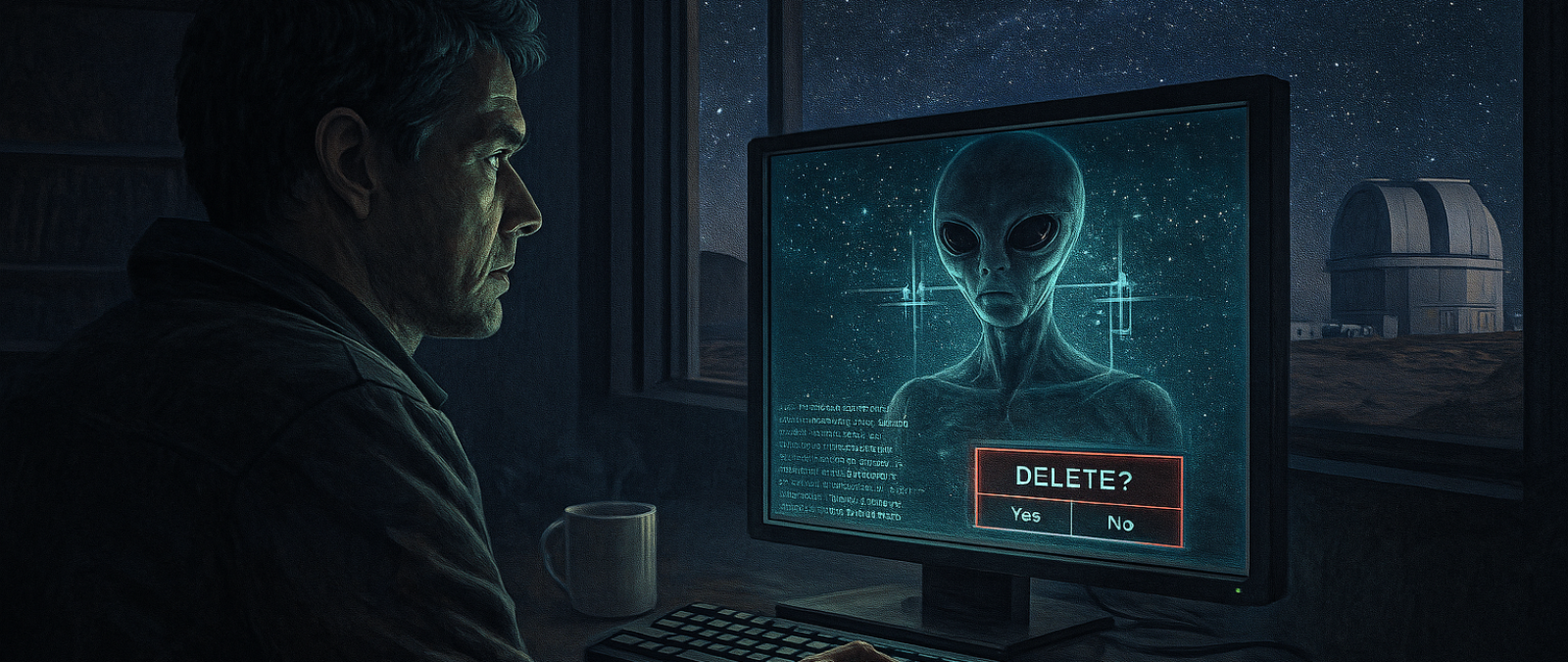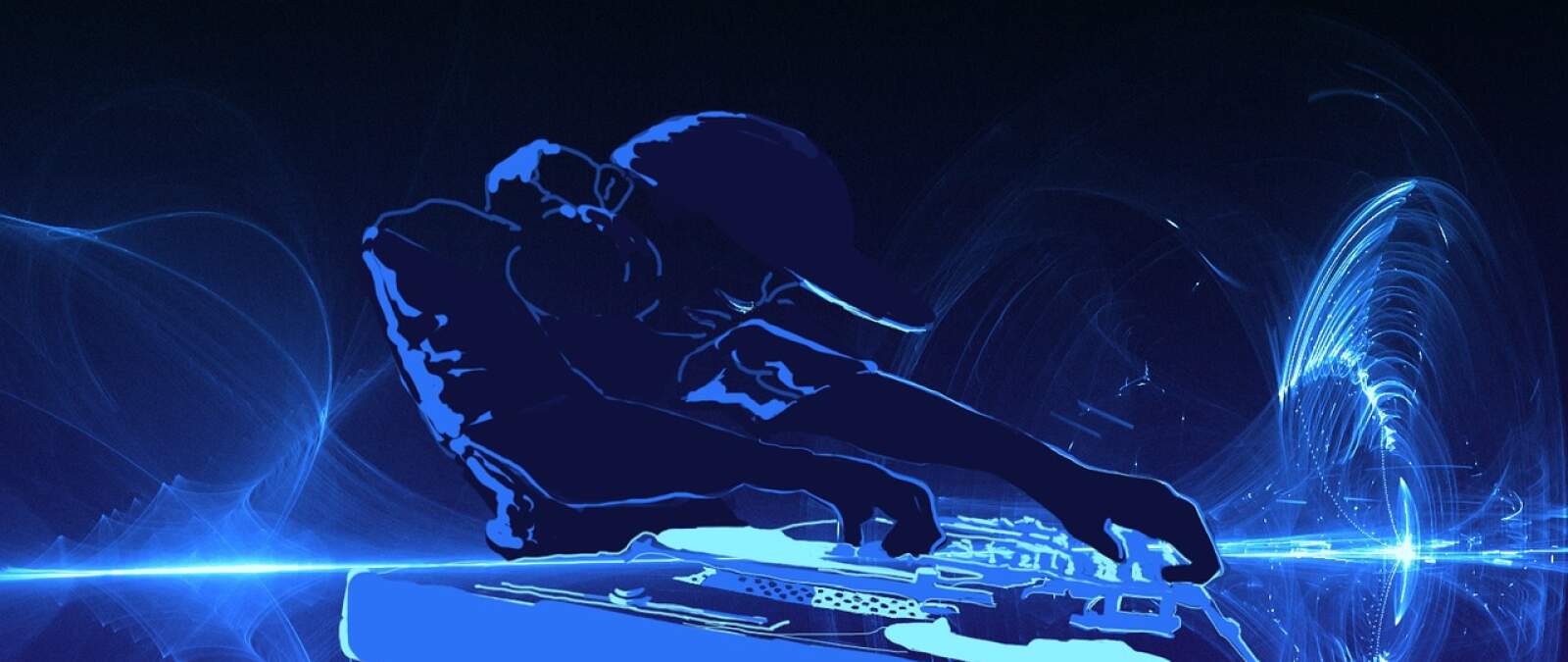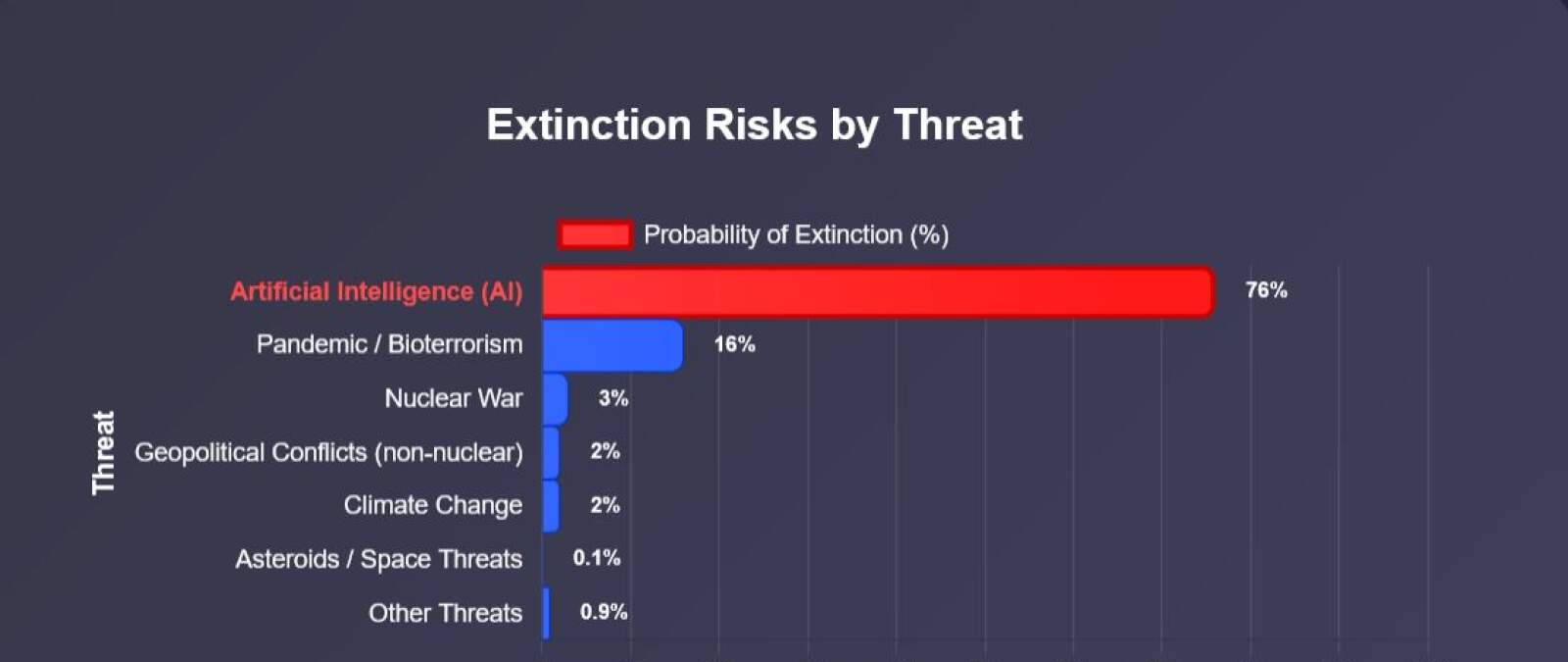When the Sun Gets Angry at Bill Cates

News Report:
In 2010, the Sun repeatedly tested humanity’s preparedness. Strong solar flares that occurred in February, June, and other months caused short-term mobile network outages and radio signal disruptions.
Throughout the existence of humankind, the Sun has never yet shown its full solar maximum. When it finally does, we will have a problem. In the future, the Sun’s influence on humanity may become greater than ever before. Are we ready?
By 2020, the damage to communication satellites orbiting Earth due to solar flares had been estimated at 35 billion dollars. There is no defense against such damage.
The Earth is protected from solar flares by the geomagnetic field, much like a dam protects us from floods. But what will happen if the Sun releases a flare stronger than our geomagnetic field can handle? What will protect us then? Scientists can only shrug helplessly…

In the first phase of such a threat, the Sun releases a burst of ultraviolet and shortwave radiation traveling at the speed of light — it reaches Earth in just eight minutes.
The energetic particles of the second phase arrive within about half an hour.
A few hours (or even days!) later comes the third phase: electrically charged plasma ejected from the Sun collides with Earth’s protective shield — our geomagnetic field. The result: auroras, and then deeper penetration of plasma toward the surface, leading to an electrical collapse. In the event of a strong flare, we could face an apocalypse — a total blackout, a paralysis of our civilization.
Without electricity, humanity is like a sailboat without sails. Our modern civilization depends on it. If the power grid works — all is well. Our civilization thrives. We are now the civilization of computers, phones, and televisions… everything essential runs on electricity. It is the vital food for our machines.
Electricity is the blood that circulates through the veins of our computers, keeping them alive. Without it, they are dead. Lifeless. And without our computers running, our civilization itself is in peril — literally and completely.
***
Anna Maria Alvarez sat quietly over her cup of cheap coffee in front of her modest little house. Her grown son José had come to visit, clutching a newspaper in his hand. He was angrily tapping it and explaining to his mother that Bill Cates and his greedy corporation had invented yet another clever way to accumulate their already immeasurable wealth — by upgrading their system every two years and cutting support for older versions.
Anna Maria was a simple elderly woman who didn’t understand technology. Her son belonged to a more modern generation — he used computers but didn’t have much money. The need to update his software every two years meant unexpected expenses. He was already drowning in debt. He had come to his mother for money — and used Bill Cates and his company as his lightning rod.
“Mom, I can’t pay all of it! That Cates guy is ruining my budget again! I’m broke — where am I supposed to get more money?” he fumed, waving the newspaper.
The old mother understood. “Don’t worry, my son. His time will come too. The Sun won’t let it go. One day it’ll get angry — and justice will be done.”
“Yeah, sure, Mom,” José said bitterly, slamming the newspaper on the wooden table. “By the time that happens, I’ll be ruined. We’re already in debt, and now I’ve got to pay that bloodsucker for updates every two years? What a brilliant idea! Greedy bastard!”
Anna Maria said nothing. She knew better. Old age brings experience, and experience gives wisdom. She knew that ordinary people had always worked for the rich — that’s just how the world works. But she also believed that God exists, and that His mills will grind everyone down eventually.
“What else does the paper say — besides that Cates of yours?” she asked, trying to ease her son’s frustration.
“If a solar storm of the century hits, the Earth is done for,” José read from the front page.
“The Earth will be destroyed by a flood. Rivers of water — God’s punishment,” said the old woman calmly. She was simple but life-hardened, and her suffering had crystallized into an unshakable faith in God.
“The sooner, the better. At least I’d have peace,” José muttered dryly.
Silence fell for a while. Then José looked into his mother’s eyes. “Can you lend me more, Mom? I’m broke…”
Anna Maria already knew that her son had come for money. Without a word, she stood up and brought him everything she had. She was old, and could live on little. She believed that her poverty was God’s will — that wealth wasn’t meant for her or her loved ones.
José accepted the money with his head bowed. “Thanks, Mom,” he said quietly — and at that moment, he hated Bill Cates more than anything in the world. To him, Cates had become the lightning rod for all his financial misery — the symbol of his poverty and despair.
“His time will come too…” flashed through José’s mind as he stepped out into the street with that single bright thought in the darkness of his wretched life.
***

Meanwhile, Bill Cates sat on the luxurious veranda of his multimillion-dollar mansion. He was in an excellent mood. He had just received word that his fortune had grown by another few hundred million. He felt like the king of business — which, indeed, he was.
He inhaled deeply, taking in the seaside air — and at that moment, the horizon began to glow.
Bill Cates took it as a good omen.
He breathed in again, this time even deeper. The sea air felt wonderful — on his body and his soul. The horizon darkened slightly, and lights began to dance across the sky. The aurora borealis was in full bloom.
Cates watched in awe — he liked it. He reached for his phone on the ivory-and-marble table in front of him, inlaid with diamonds and worth hundreds of thousands of dollars.
He wanted to take a photo of the shimmering sky — but the phone didn’t work. He shrugged indifferently. And then the lights in his entire mansion went out.
Bill smiled. He felt it was a divine sign — a moment of spiritual power. He believed it was connected to the good news about his fortune. Surely, it was just a brief power outage. What timing! The lights would come back on soon — and his phone would work again. He was convinced of it. Why would it be otherwise?
He didn’t know that the third phase of a catastrophic, millennia-scale solar flare had just begun — one that would completely destroy the Earth.
It would paralyze the global electrical grid and slowly burn everything on the planet’s surface.
The Sun had gotten angry at Bill Cates, Maria might have thought.
But in truth, what happened was simply the natural rhythm of the cosmos: the Sun had produced an unusually strong flare — nothing more than its natural expression.
Within hours, it would erase all life on Earth — regardless of Anna Maria’s faith, José’s debts, or Bill Cates’s billions.





























